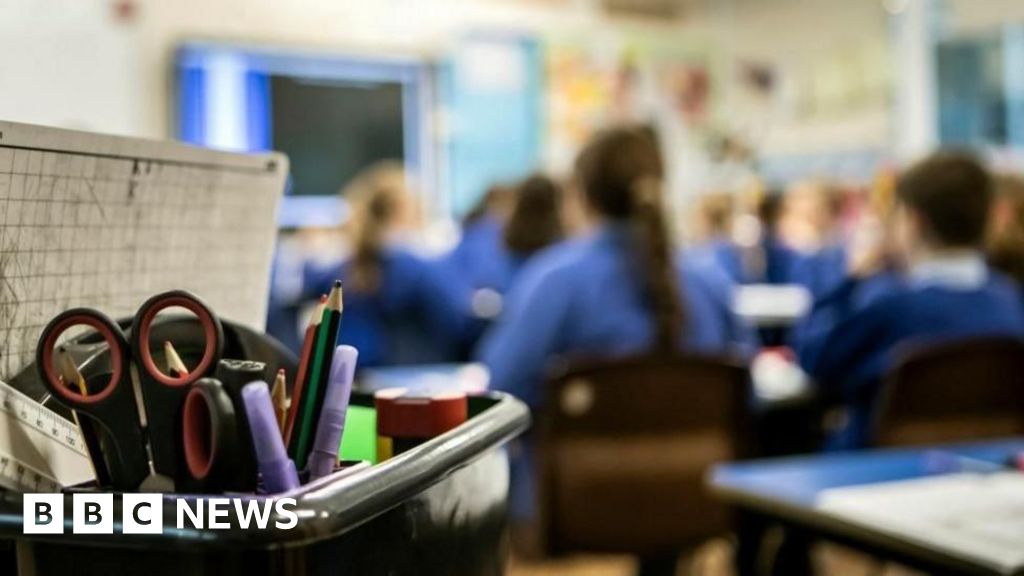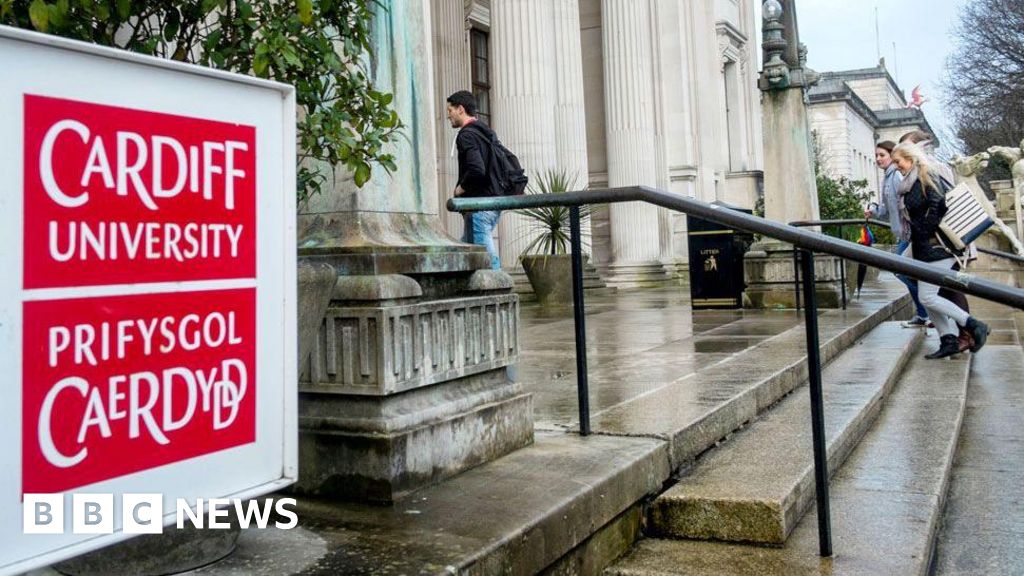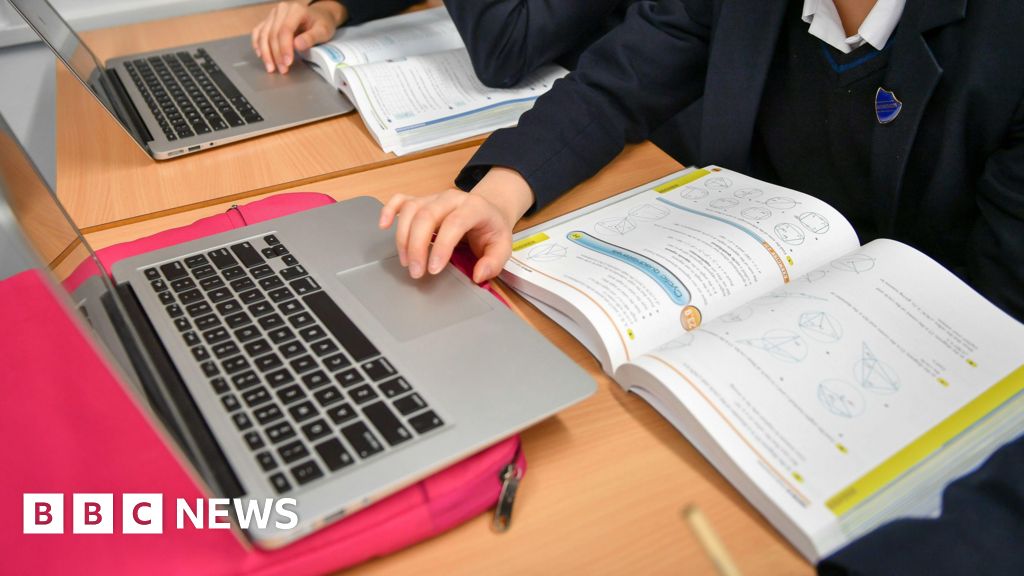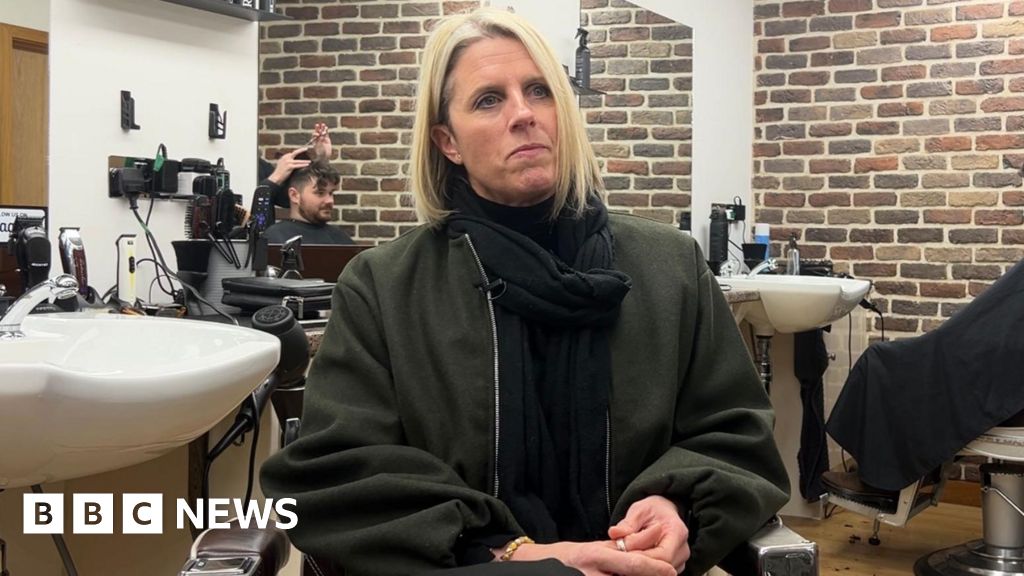
 BBC
BBC
Working towards a Duke of Edinburgh (DofE) award can conjure up an image of teenagers hiking and camping in the mountains rather than preparing afternoon tea.
But at HMP/YOI Pentonville learning valuable cookery skills has helped inmates achieve their bronze and silver medals - which they're receiving soon.
I went along to speak to some of the 32 young adults who are the third cohort of the course that began in 2023 at the institution.

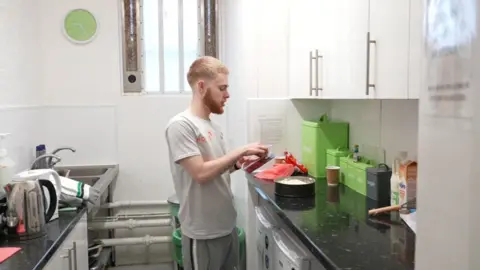
Morgan places the finishing touches to his cheesecake
One of the DofE participants delicately places raspberries on a cheesecake as a finishing touch.
Another politely asks the guests how they would like their tea served.
But this is not a typical afternoon tea.
I had to go through a labyrinth of bolted doors to get to this kitchen - in the corners of the room, officers with jingling keys are looking on.
Morgan, 21, and Mo, 24 are both serving time for non-violent drug offences and though they appear relaxed, articulate and friendly when they chat to us on the sofa afterwards in the prison library, this wasn't always the case.
They tell us that for many of them doing the award, it was the first time in their lives they'd felt they'd an opportunity to achieve anything at all.
Even if what to many would seem to be an everyday task such as making a cheesecake.

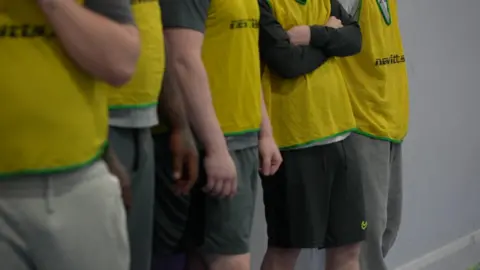
HMP/YOI Pentonville has been running the DoE course since last year
It's not Morgan's first on the wrong side of the law but he's determined this will be his last.
"I'm only really used to crime, even environments like this [the library], I'm not used to.
"This room speaks volumes, it's crazy and it's something I've never done before," he says.
"If I'm being totally honest, I only signed up as a way of getting out of my cell, but as time went on I saw for what it was, I started to enjoy it. It's opened a lot of doors and it's opened my mind."


Morgan said learning to how present himself was a vital skill he did not realise he needed
Mo added: "It's been a good journey, there's been skills that we've been allowed to do like football and cooking that you wouldn't be allowed to do as a normal prisoner so Duke of Edinburgh has been opening doors for us.
"Rather just being in cell, I'm on a path, I'm rehabilitating and I'm changing my life."
Teenagers at school are typically the candidates for DofE, which sees them completing extra curricular activities to build a well-rounded skill set before leaving school.
The programme - which teaches cooking, literacy, sports, mental health education and leadership skills - been running in prisons since 2021.
By the end of next year, it is expected to have expanded to 40 prisons across the country.


Elizabeth said the project also proved a success at another prison she worked at
Prison teacher Elizabeth Dear, who is the force behind the project, tells us that it was the only prison class that had 100% attendance, at another prison she worked at.
As such, she was determined to make it an option for the young offenders at Pentonville.
What makes it unique, she says, is that the prisoners can choose their own topics, they are not regular school subjects and it gets them doing practical things and that have real-life uses.

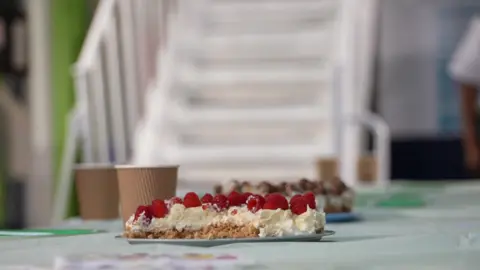
The cheesecake was prepared by inmates working towards their bronze and silver awards
"The best part of it is the individualisation of it, in prison there aren't that many choices that you get to make every day that are your own, so the fact that you can choose your skill and where you volunteer," she explains.
"It's so important for these guys to have that freedom of choice and to feel like they are in control of what they're learning and they can do something they are genuinely interested in."
For Morgan, learning to how present himself was a vital skill he didn't previously realise he needed.
He explained: "You've got to learn how to conduct yourself and change your vocabulary - how to speak, act in different environments.
"I didn't always speak like this, a lot of the time I used words that people don't understand.

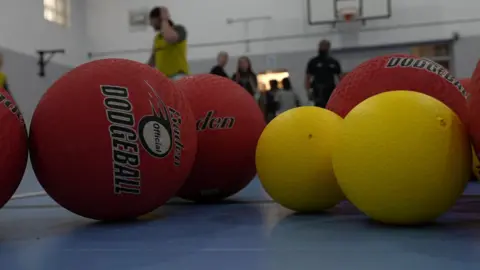
The inmates have also been learning how to play sports
"A lot young people have no people skills, the way they speak to officers, the way they come across seems rude and that just creates a clash.
"After doing this, I have seen young people that now know how to talk and approach people.
"It's helped them go a long way in here and I can only imagine how much this would help them on the outside too. It's the teamwork that helps so much too, picking skills up from other people."
He added that the support inside was vital to their success outside and stopping the cycle of reoffending.
"A lot of people leave prison and come straight back because they are not given the opportunities to really better their lives. It starts here," he says.
"There's no support on release, so if you're not helping people in here and they are not going to know what to do when and navigate life afterwards and put a plan together and make the right decisions when they get released."

 8 months ago
52
8 months ago
52



